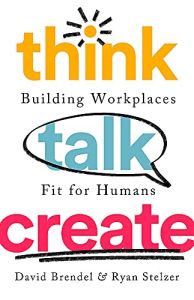
Book
Think Talk Create
Building Workplaces Fit for Humans
Recommendation
Management consultants David Brendel and Ryan Stelzer make a comprehensive, heartfelt appeal for evidence-based decision-making that relies on quantitative data analysis combined with wisdom derived from slow thinking, conversation and co-creation of ideas. They call their method “active inquiry,” and they created a model that enables you to practice it. Through stories and findings from neuroscience and psychology, the authors argue that psychologically safe organizations create better workplaces, greater profits – and even solutions to the existential challenges facing humanity.
Summary
About the Authors
David Brendel and Ryan Stelzer are co-founders at Strategy of Mind, a management consultancy rooted in philosophy and psychology.
Learners who read this summary also read
Book
Book
Book
Book
















Comment on this summary